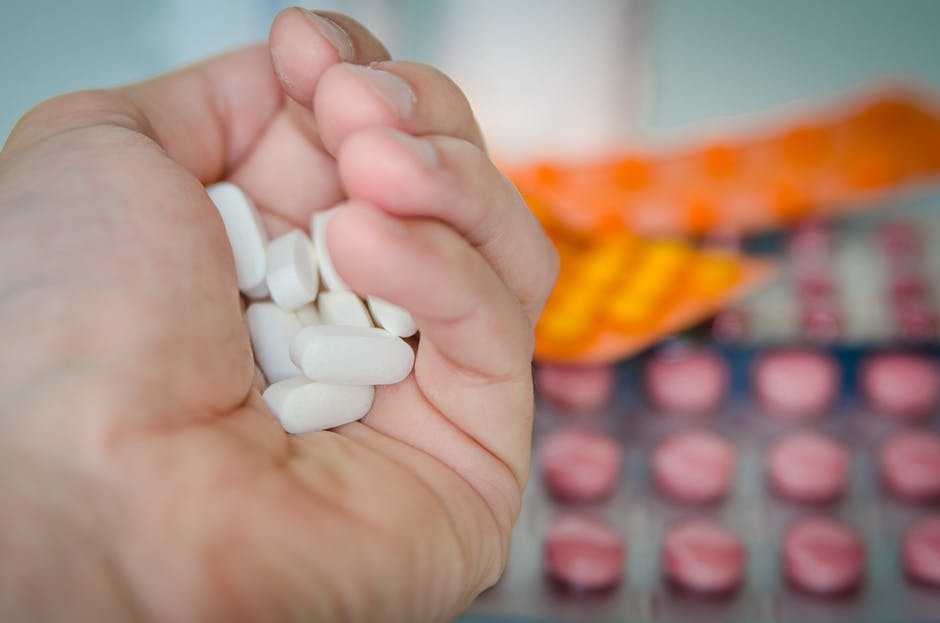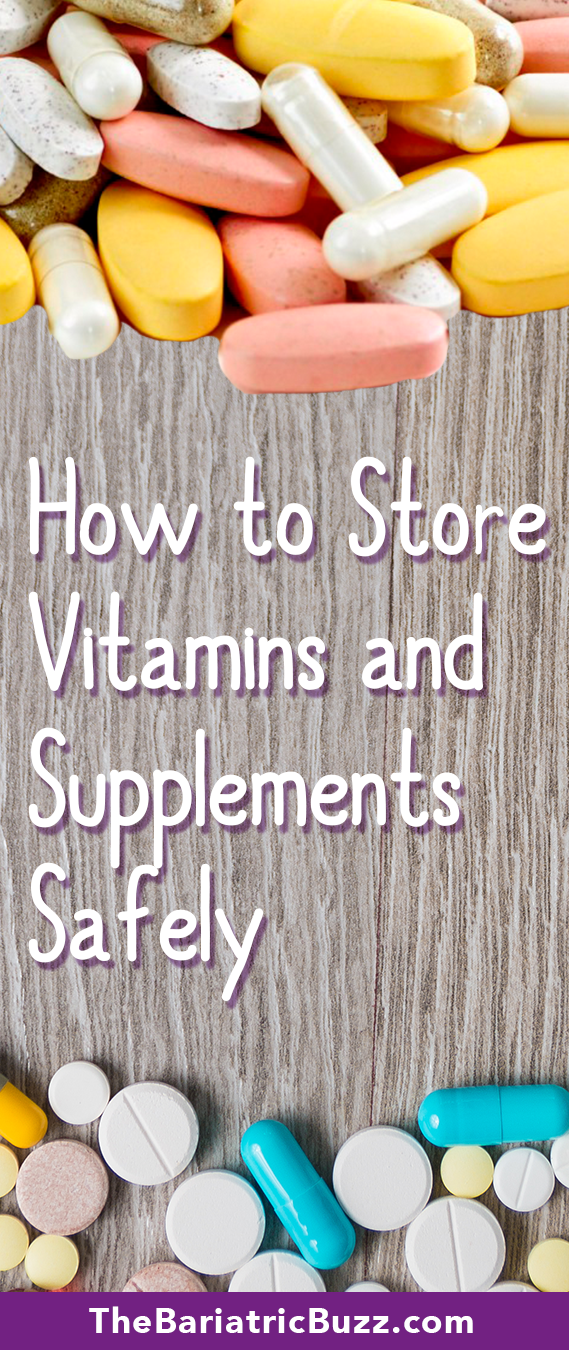How to Store Vitamins and Supplements Safely
Kitchen? Bathroom? Fridge? Where should I store?
- Steer clear of the bathroom
- Stay away from the sink and stove
- Keep out of the reach of children
- Keep in original container
- Store high and dry
Vitamins and supplements are a major part of the bariatric lifestyle. After going through surgery, your body no longer absorbs food and vitamins as easily as it did before. You may find yourself having to purchase special vitamins that are easier for you to absorb. Purchasing bariatric vitamins and supplements can get expensive, so it’s important to make sure that you store them properly to prevent your weight loss investment from going to waste!
Generally, most vitamins need to be stored in a cool, dry place, or in some cases in the refrigerator. But just because your storage space is cool and dry, it doesn’t mean your vitamins are safe from losing effectiveness or endangering someone else.
Here are few easy tips to help you store vitamins and supplements safely in your home:
Don’t store vitamins in your bathroom:
Most homes have a medicine cabinet in the bathroom, but ironically this is actually one of the WORST places to keep your vitamins and medications! Think about it. You are storing your vitamins in the same small room in which you shower – which means you are exposing them to heat and humidity on a daily basis. And if you are taking your vitamin in the bathroom in these conditions, you are actually letting in a bit of moisture into the bottle each time. All of this can lead to deliquescence (the degradation of vitamins)and will lessen the effectiveness and potency of the vitamins over time. So basically, you’re not getting all the nutrition you paid for.
Vitamins that are particularly sensitive to humidity include water-soluble vitamins B, vitamin C, thiamine, and vitamin B6.
Solution: Consider storing your vitamins in your bedroom or living room instead.
Try not to transfer or combine:
After going through Bariatric surgery, your doctor will have you on a new diet plan that includes strict vitamin regime. To make things easy, it may be tempting for you to combine all your supplements into one container or distribute them into a pill organizer. Don’t! Many vitamins require a specific type of packaging for optimal potency, which is why it is often better to leave them in their original containers. For example, some supplements will lose their effectiveness if they are exposed to light and must be kept in a dark-colored container. Another reason you shouldn’t combine different vitamins into one container is that they could rub off on each other and not have the same effect.
Solution: Instead of combining your vitamins in one container space, store each type pill separately in your pill box and take what you need. Never use clear or transparent pill boxes.

Be careful in the kitchen:
Storing your vitamins in the kitchen is pretty ideal because you already eat there anyway. And there are some vitamins and supplements that should be stored in the fridge, such as liquid iron and certain probiotics. However, most vitamins may degrade in quality if you store them in the fridge. This is because there is a lot of moisture inside, so even though the fridge is a cool and dark place, it is not a dry place. Only store vitamins and supplements in the fridge if the label specifically tells you to. If you decide to keep your vitamins in your kitchen cabinet, be careful as this is another place where heat and humidity could become an issue. The temperature and humidity in the kitchen will rise and fall, so make sure you consider this before you leave your expensive vitamins stored in there.
Solution: Look for a dry, cool cupboard that is not near the sink, stove or oven.
Keep away from children and pets:
If you chose to go with a more natural nutritional vitamin or supplement, you may not take storing them in a safe place as seriously. Keep in mind, many of these natural supplements can be potentially poisonous when taken in high doses. A regular dose to you may be a deadly dose to a child or pet. Household poisonings with children and pets often happen because the vitamins were not stored high enough, the container was not closed properly, or the parent moved them into a container that was not childproof. Always store your bariatric vitamins as you would any medication, in their original containers and out of reach of children and pets.
Solution: Even if your vitamins are in a childproof container, you should make sure that they are inaccessible.
Save this article for later by pinning the image below:
